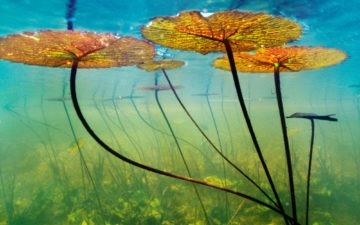W Ford Doolittle in Aeon:
 The idea that the Earth itself is like a single evolving ‘organism’ was developed in the mid-1970s by the independent English scientist and inventor James Lovelock and the American biologist Lynn Margulis. They dubbed it the ‘Gaia hypothesis’, asserting that the biosphere is an ‘active adaptive control system able to maintain the Earth in homeostasis’. Sometimes they went pretty far with this line of reasoning: Lovelock even ventured that algal mats have evolved so as to control global temperature, while Australia’s Great Barrier Reef might be a ‘partly finished project for an evaporation lagoon’, whose purpose was to control oceanic salinity.
The idea that the Earth itself is like a single evolving ‘organism’ was developed in the mid-1970s by the independent English scientist and inventor James Lovelock and the American biologist Lynn Margulis. They dubbed it the ‘Gaia hypothesis’, asserting that the biosphere is an ‘active adaptive control system able to maintain the Earth in homeostasis’. Sometimes they went pretty far with this line of reasoning: Lovelock even ventured that algal mats have evolved so as to control global temperature, while Australia’s Great Barrier Reef might be a ‘partly finished project for an evaporation lagoon’, whose purpose was to control oceanic salinity.
The notion that the Earth itself is a living system captured the imagination of New Age enthusiasts, who deified Gaia as the Earth Goddess. But it has received rough treatment at the hands of evolutionary biologists like me, and is generally scorned by most scientific Darwinists. Most of them are still negative about Gaia: viewing many Earthly features as biological products might well have been extraordinarily fruitful, generating much good science, but Earth is nothing like an evolved organism. Algal mats and coral reefs are just not ‘adaptations’ that enhance Earth’s ‘fitness’ in the same way that eyes and wings contribute to the fitness of birds. Darwinian natural selection doesn’t work that way.
I’ve got a confession though: I’ve warmed to Gaia over the years.
More here.
